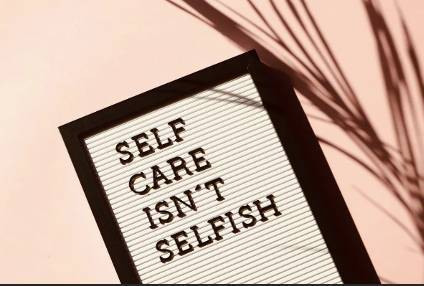By Emily Roundy, Ashley Yaugher and Amanda McIntosh
May is recognized as National Mental Health Awareness Month in the United States. This recognition aims to help us be aware of the state of mental health and stigmas in our community, the resources that are out there for our community, and educates the community on mental health as well as how we can support those in our community who struggle with mental health (National Alliance of Mental Illness [NAMI], 2024; Substance Abuse and Mental Health Services Administration [SAMHSA], 2024).
It is no secret that mental health is a very relevant topic in today’s world, and to us as citizens of Carbon and Emery counties. The U.S. ranks in the top 30 countries around the world with the most mental health issues (Haines, 2023). Studies have shown that 1 in 5 adults and children in the U.S. experience mental illness (CDC, 2023). Inside the United States, Utah ranked 48th on the adult ranking scale in 2022, showing that it is one of the states with the most mental health issues and worst access to care (Mental Health America). The Southeast region of Utah (Carbon, Emery, and Grand counties) was ranked 3rd out of the 14 regions of Utah in high rates of depression and is leading the state in substance-related overdose deaths (IBIS 2023a; IBIS, 2023b). Despite these staggering statistics, there is hope for those who struggle with mental health and those who support them. There are many mental health resources Carbon and Emery County citizens can access.
As citizens of the United States, we have access to many governmental resources. There are a few phone numbers you can call, such as the suicide crisis line, 988. For mental health advice tailored towards new and expecting mothers, there is the phone number 1-833-TLC-MAMA. For the SAMHSA’s National Helpline, call 1-800-662-HELP. On a state level, Safe UT is a mental health app designed for students, parents, educators, military (including National Guard and civilian personnel) healthcare providers, law enforcement, firefighters, and families. For more government and state resources go to Findsupport.gov or United Way’s 211.org.
Locally, for example, Four Corners Community Behavioral Health (fourcornersbh.com) is an excellent resource in our community. They provide outpatient and medication-assisted treatment, psychosocial rehabilitation services, and crisis support. Their outpatient services include mental health services, youth and family mental health services, and substance use disorder services. The HOPE Squad of Carbon, Emery, and Grand counties, (facebook.com/hopesquadcarbonandemery) is also an excellent resource. They do many suicide prevention events and trainings throughout the year.
If you are looking for education on mental health topics or where to learn more about the benefits of self-care, USU Extension publishes mental health articles (extension.usu.edu/mentalhealth/). These articles tackle various aspects of mental health and provide resources for more information.
For more local mental health resources, please review the Carbon and Emery Resource booklets. The online version is found here: extension.usu.edu/heart/resource-books.
References:
Centers for Disease Control and Prevention: https://www.cdc.gov/mentalhealth/learn/index.htm#:~:text=More%20than%201%20in%205,a%20seriously%20debilitating%20mental%20illness.&text=About%201%20in%2025%20U.S.,bipolar%20disorder%2C%20or%20major%20depression
Mental Health America: https://mhanational.org/issues/2022/ranking-states
National Alliance on Mental Illness: https://www.nami.org/get-involved/awareness-events/mental-health-awareness-month/
Public Health Indicator Based Information System a: https://ibis.health.utah.gov/ibisph-view/indicator/complete_profile/Dep.html
Public Health Indicator Based Information System b: https://ibis.health.utah.gov/ibisph-view/indicator/view/PoiDth.LHD.html
Substance Abuse and Mental Health Services Administration: https://www.samhsa.gov/mental-health-awareness-month
U.S. News & World Report: https://www.usnews.com/news/best-countries/slideshows/the-most-depressed-countries-in-the-world

